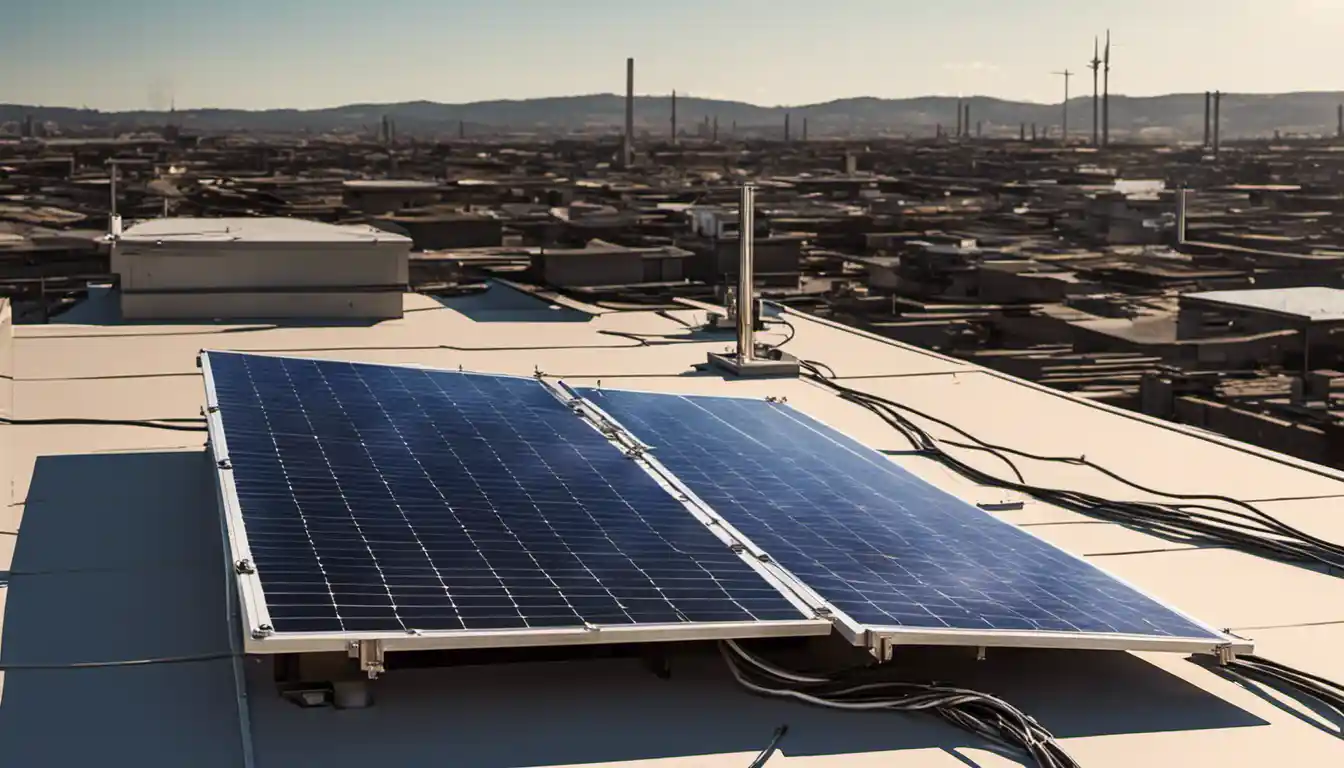Introduction
Solar panels themselves do not pose any direct health risks as they simply absorb sunlight and convert it into energy. However, the production process of solar panels involves the usage of hazardous materials, but these potential health risks are predominantly occupational risks for workers in the manufacturing industry and do not affect everyday users of solar panels.
Understanding Solar Panels
Before delving into the question “are solar panels bad for your health?”, it is essential to understand what solar panels are and how they work. Solar panels, or photovoltaic cells, are devices that convert sunlight into electricity. They are commonly found on rooftops, powering homes and businesses around the world. The popularity of solar panels is not surprising given their countless advantages – they help us reduce our carbon footprint, lower electricity bills, and become more independent from traditional power grids.
Do Solar Panels Cause Health Problems?
The Concept of EMF Radiation

When discussing the health impacts of solar panels, we often come across the term ‘EMF radiation’. EMF refers to electromagnetic fields, which are areas of energy emitted by electrical devices. The sun, along with everyday appliances like mobile phones and microwaves, are sources of EMF radiation. Exposure to high levels of this type of radiation can potentially lead to health problems.
Solar Panels and EMF Radiation
Questions such as “do solar panels cause health problems?” often arise due to concerns about EMF radiation. Like other electrical devices, solar panels do emit a certain amount of EMF radiation. However, it’s important to note that the level of EMF radiation from solar panels is very low and similar to that of many household appliances.
Possible Health Side Effects
The possible health side effects of EMF exposure can range from sleep disturbances and headaches to more serious conditions like cancer, but these effects often result from exposure to high levels of EMF radiation. Given that the EMF radiation from solar panels is minimal, the common consensus in the scientific community is that the health risk posed by solar panel radiation is negligible.
Fire Risks Associated with Solar Panels
Although solar panels themselves don’t directly pose health risks, they could be a potential fire hazard if they are incorrectly installed or poorly maintained. Like any electrical device, solar panels pose a risk of sparking an electrical fire. However, by implementing proper installation techniques and conducting regular maintenance checks, these risks can be greatly reduced.
Electrocution Risks from Solar Panels

Another potential hazard related to solar panels is the risk of electrocution. While the risk is minimal for properly installed and managed systems, faulty wiring or handling the panels when they are energized can pose a hazard. That’s why it’s imperative to have solar panels installed by a professional and to conduct regular checks on your system’s integrity.
Other Potential Risks and Problems
Pollution from Solar Panels
If we consider the lifecycle of a solar panel, there are certain stages – especially the manufacturing and disposal stages – that do contribute to pollution. Solar panel manufacturing involves the use of heavy metals like lead and cadmium, which can be harmful if not disposed of correctly. However, it’s important to place this in context. Compared to traditional fossil fuel energy sources, the pollution caused by solar panels is considerably less.
Electromagnetic Hypersensitivity and Solar Panels
Electromagnetic hypersensitivity is a condition characterized by adverse reactions to the EMF radiation emitted by electronic devices, including solar panels. Symptoms can include headaches, sleep disturbances, and fatigue. It’s a contentious issue, with opinions differing on whether the condition is a genuine physiological disorder or a psychosomatic phenomenon. More research is needed to fully understand this condition, but for now, it’s worth noting that very few people are affected.
Silicon Dust and Health
![]()
During the manufacturing process, solar panels can produce silicon dust, which, if inhaled, could pose a minor health risk. However, this is primarily an occupational hazard for workers involved in the production process and doesn’t pose a risk for household users of solar panels.
Averting Health Risks: Safe Practices with Solar Panels
With the potential health risks covered, it’s important to note the safe practices when using solar panels. Always consult a professional for installations and maintenance checks to avoid fire and electrocution risks. For individuals concerned about the level of EMF radiation, positioning the panels as far from the home as possible could help reduce exposure.
Are Solar Panels Really Hazardous to Health?
So, to answer the question, “are solar panels bad for your health?”, in a word, no. Any associated risks are generally minimal and can be effectively managed with appropriate safety measures. When compared to the dangers of traditional energy sources, the benefits of switching to solar energy are vast. As our understanding of the impact and management of possible health side effects continues to grow, solar energy continues to be a safer, cleaner, and more sustainable choice for energy needs.
Summary and Conclusion
While there are potential health effects linked to the use of solar panels, including EMF radiation exposure and possible fire and electrocution risks, these are minimal and can be effectively mitigated with proper installation and safety precautions. Solar panels contribute significantly less to pollution than traditional energy sources, and concerns about the production process do not impact day-to-day users. Ultimately, the benefits of solar panels greatly outweigh the possible health risks, making them a safe, efficient, and environmentally-friendly choice.



